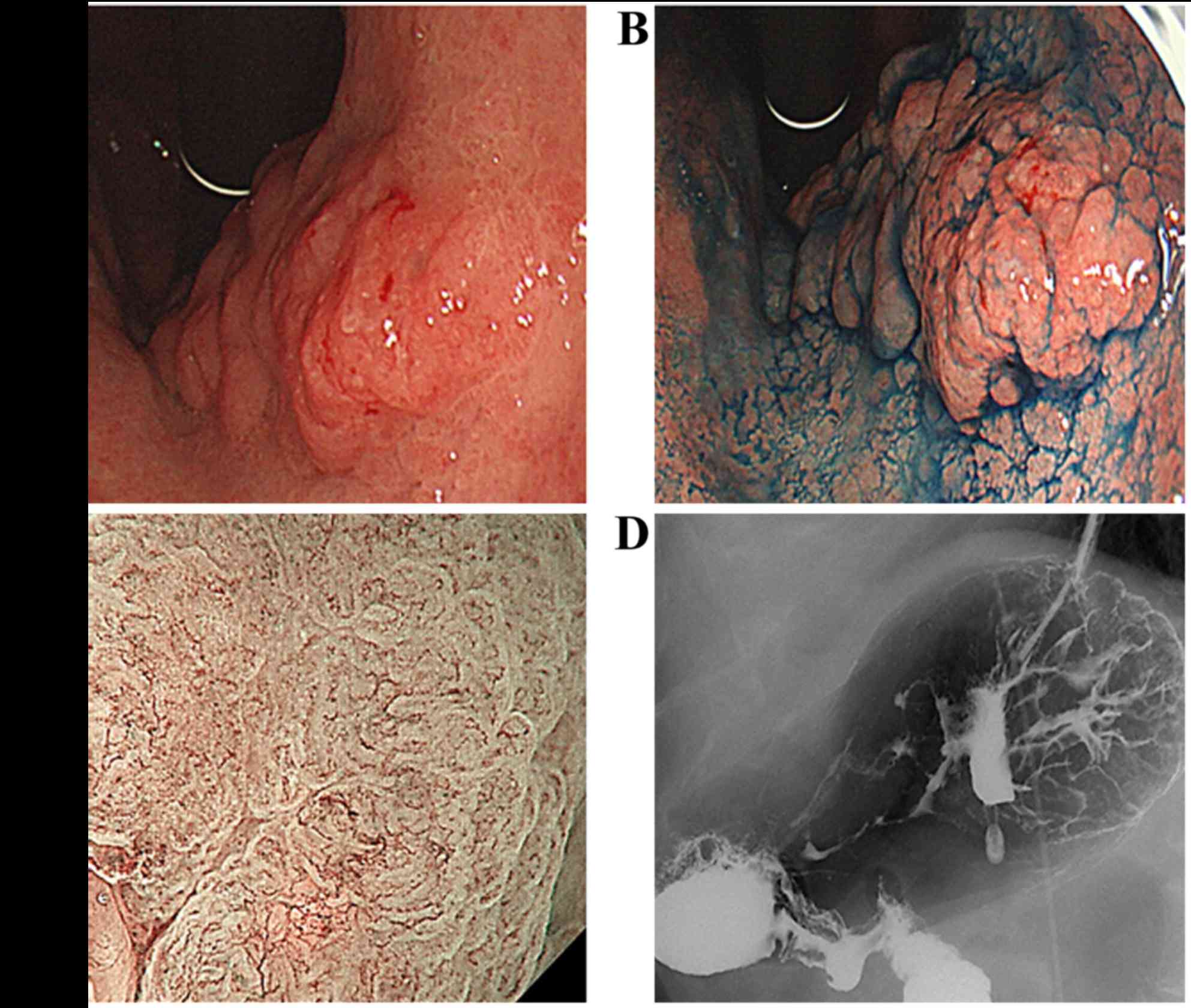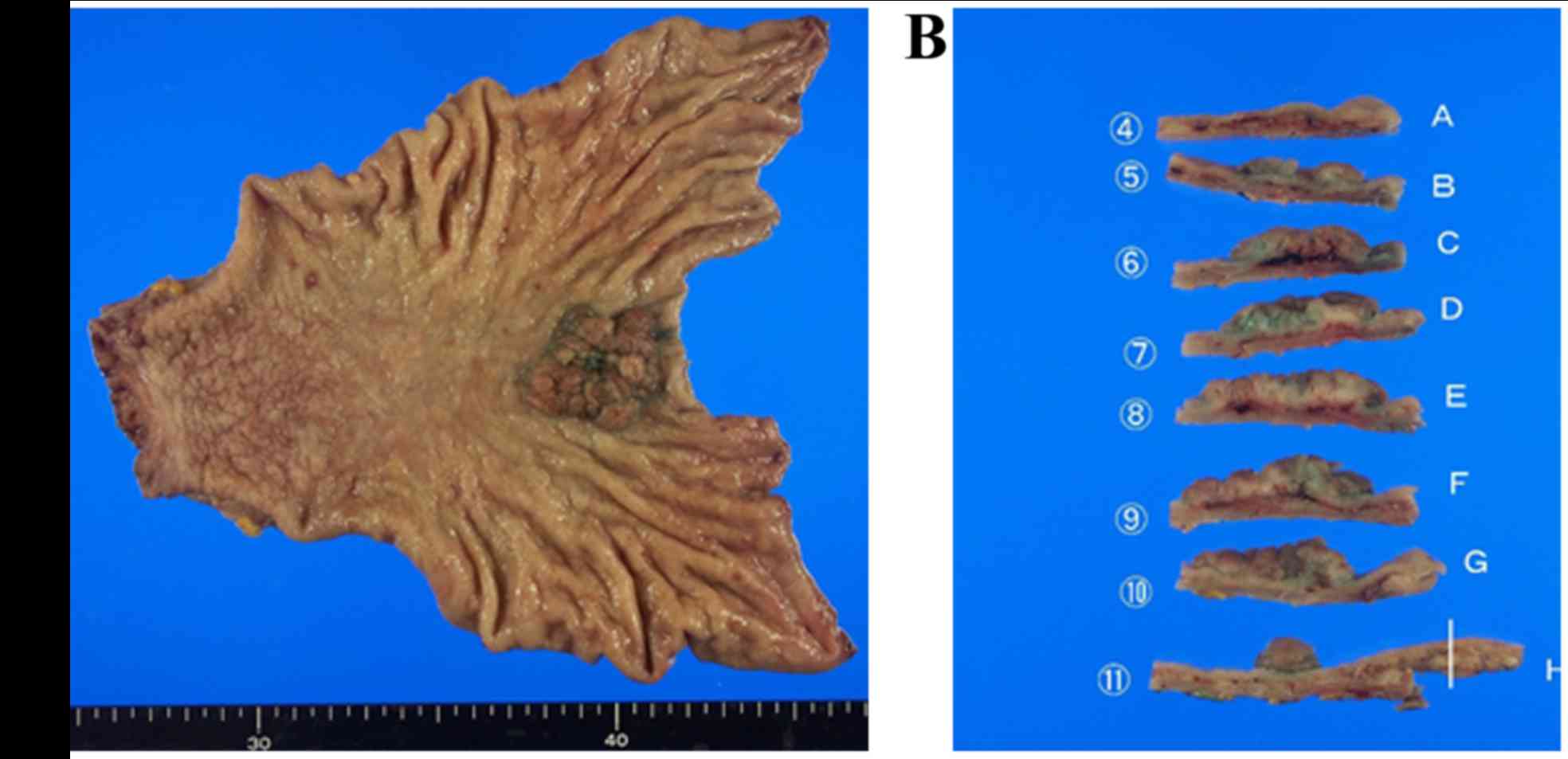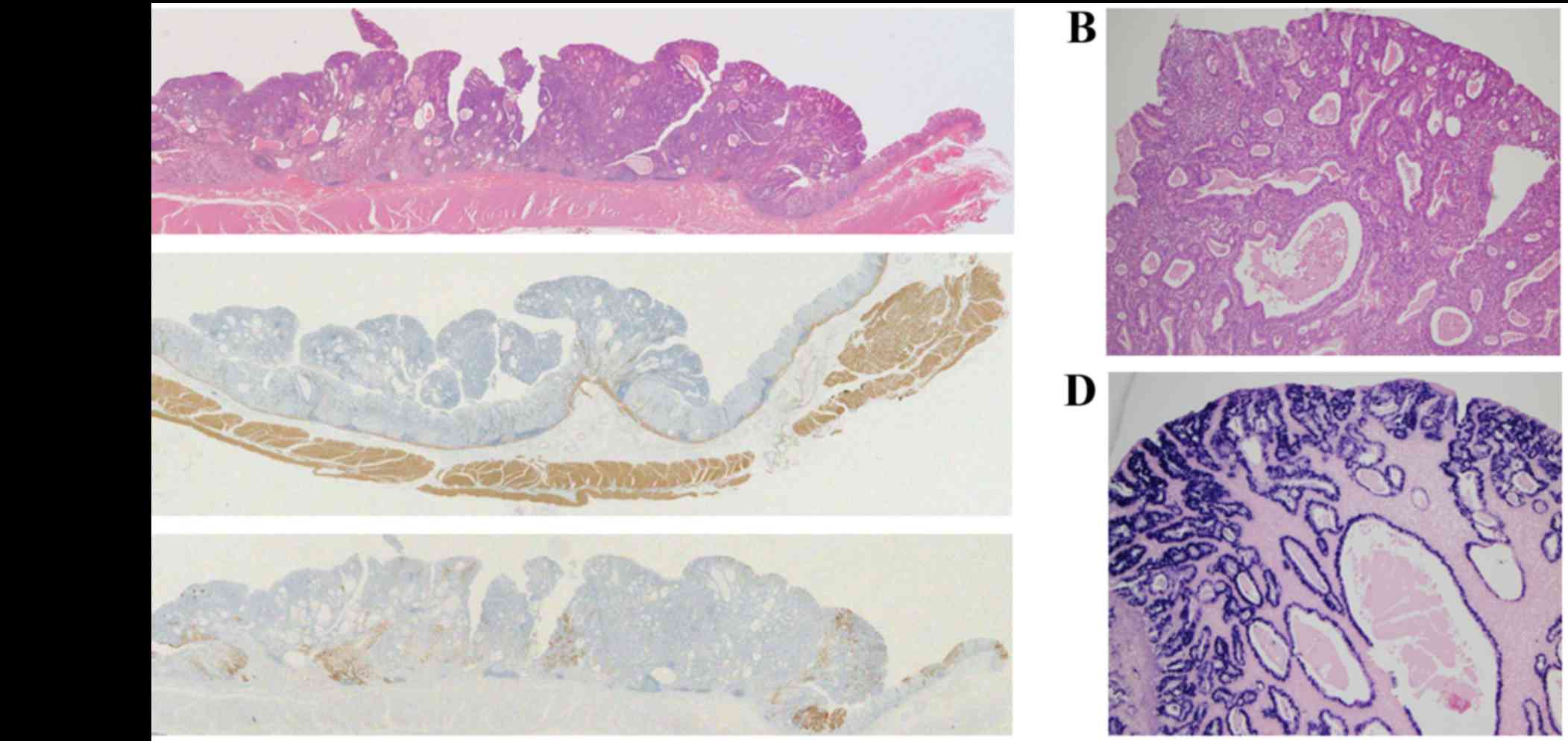Spandidos Publications style
Horiguchi N, Tahara T, Kawamura T, Okubo M, Ishizuka T, Nakano N, Nakagawa Y, Nagasaka M, Nakagawa M, Tsukamoto T, Tsukamoto T, et al: Unusual growth of an Epstein-Barr virus-associated differentiated early-stage gastric carcinoma: A case report. Mol Clin Oncol 8: 657-660, 2018.
APA
Horiguchi, N., Tahara, T., Kawamura, T., Okubo, M., Ishizuka, T., Nakano, N. ... Ohmiya, N. (2018). Unusual growth of an Epstein-Barr virus-associated differentiated early-stage gastric carcinoma: A case report. Molecular and Clinical Oncology, 8, 657-660. https://doi.org/10.3892/mco.2018.1586
MLA
Horiguchi, N., Tahara, T., Kawamura, T., Okubo, M., Ishizuka, T., Nakano, N., Nakagawa, Y., Nagasaka, M., Nakagawa, M., Tsukamoto, T., Shibata, T., Ohmiya, N."Unusual growth of an Epstein-Barr virus-associated differentiated early-stage gastric carcinoma: A case report". Molecular and Clinical Oncology 8.5 (2018): 657-660.
Chicago
Horiguchi, N., Tahara, T., Kawamura, T., Okubo, M., Ishizuka, T., Nakano, N., Nakagawa, Y., Nagasaka, M., Nakagawa, M., Tsukamoto, T., Shibata, T., Ohmiya, N."Unusual growth of an Epstein-Barr virus-associated differentiated early-stage gastric carcinoma: A case report". Molecular and Clinical Oncology 8, no. 5 (2018): 657-660. https://doi.org/10.3892/mco.2018.1586

















